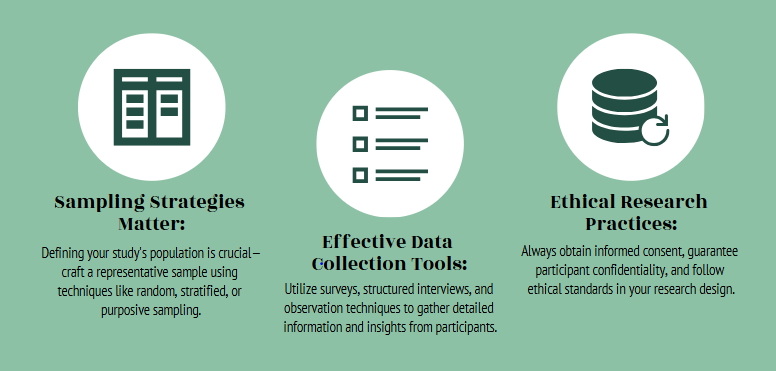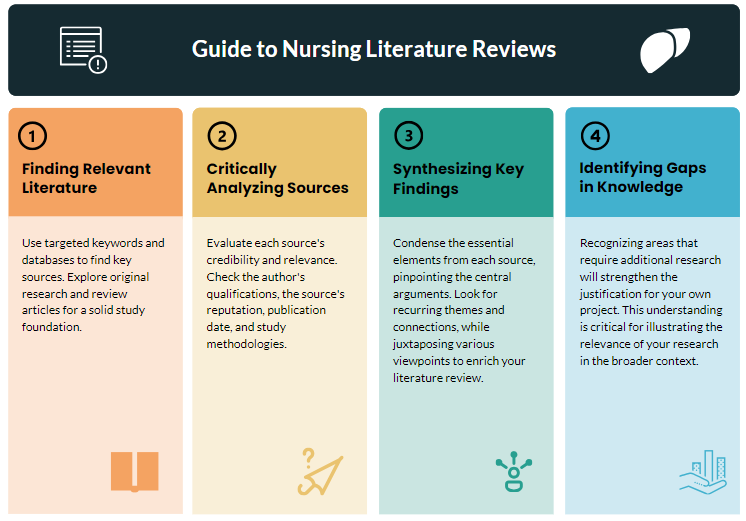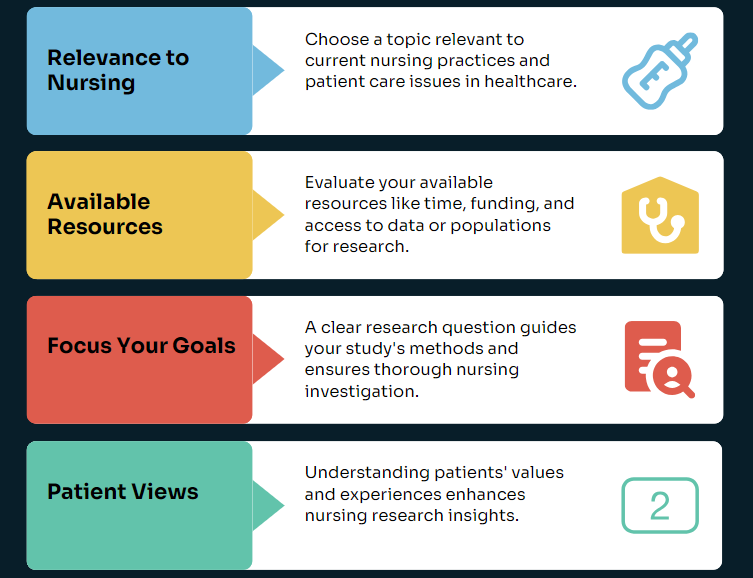
Table of Contents
Embarking on a PhD in nursing is a significant undertaking, demanding rigorous research, critical thinking, and the ability to contribute original knowledge to the field. The culmination of this journey is the PhD nursing thesis, a document that encapsulates your research findings and serves as a testament to your intellectual prowess. Crafting a stellar PhD nursing thesis requires careful planning, meticulous execution, and a keen understanding of the expectations surrounding this academic endeavor.
This comprehensive guide will equip you with the necessary knowledge and strategies to navigate the process and produce a compelling thesis that leaves a lasting impression.
Step-by-Step Guide to Crafting a PhD Nursing Thesis
1. Defining Your Research Question:
The foundation of a strong PhD nursing thesis lies in a well-defined research question. This question serves as your compass, guiding your research and ensuring that your work contributes meaningfully to the body of nursing knowledge. Start by identifying a gap in the existing literature, a pressing clinical issue, or an area where further investigation is needed. Consider your passion, expertise, and the resources available to you. Formulate a question that is:
- Specific: Avoid vague or overly broad questions.
- Measurable: Ensure your research question can be answered through data collection and analysis.
- Achievable: Choose a question that is manageable within the scope of your PhD program.
- Relevant: The question should have significance to the field of nursing and contribute to its advancement.
- Time-bound: Set realistic timelines for your research project.
2. The Literature Review: A Foundation for Your Research:
A comprehensive and insightful literature review forms the bedrock of your PhD nursing thesis. It showcases your understanding of the existing research landscape, identifies the knowledge gaps your research addresses, and provides a theoretical framework for your investigation.
- Begin with a broad overview: Start by exploring general concepts related to your research question and identifying key themes.
- Narrow your focus: As you delve deeper, concentrate on studies directly related to your topic, analyzing their methodologies, findings, and limitations.
- Analyze and synthesize: Go beyond summarizing individual studies. Critically evaluate the existing research, identify contradictions, and synthesize the findings to form a coherent narrative.
- Identify gaps and opportunities: This critical analysis should highlight the knowledge gaps that your PhD nursing thesis aims to fill.
3. Research Design and Methodology:
The research design and methodology section of your PhD nursing thesis is crucial for ensuring the validity and reliability of your findings. This section outlines the specific approach you will take to answer your research question, providing a clear roadmap for your investigation.
- Choose the appropriate design: Consider the nature of your research question, the type of data you need to collect, and the available resources. Qualitative, quantitative, or mixed methods designs each offer unique advantages and limitations.
- Define your population and sample: Carefully select your study population and sampling method to ensure the representativeness of your data and the generalizability of your findings.
- Develop your data collection tools: Choose or create data collection instruments that are appropriate for your research question and methodology. Ensure they are reliable and valid.
- Ethical considerations: Address all ethical aspects of your research, including informed consent, confidentiality, and data security. Obtain the necessary approvals from relevant ethics boards.

4. Data Analysis and Interpretation:
The heart of your PhD nursing thesis lies in the data analysis and interpretation section. This is where you transform raw data into meaningful insights, demonstrating your ability to draw conclusions and contribute to nursing knowledge.
- Analyze the data: Apply appropriate statistical or qualitative analysis techniques to your collected data. Use software packages or specialized tools to ensure accuracy and rigor.
- Interpret the findings: Connect your analysis to your research question and existing literature. Present your findings in a clear and concise manner, using tables, figures, and other visual aids when appropriate.
- Discuss the implications: Reflect on the significance of your findings for nursing practice, policy, or future research. Address any limitations of your study and suggest potential avenues for further exploration.
5. Writing the Thesis:
The final stage of your PhD journey involves transforming your research findings into a compelling and well-structured thesis. This requires meticulous writing, clear organization, and a strong narrative flow.
- Develop a clear structure: Organize your thesis into logical sections, including an introduction, literature review, methodology, results, discussion, conclusion, and references.
- Maintain consistency and clarity: Use consistent language and style throughout your thesis. Ensure all sentences are grammatically correct and free of jargon.
- Support your claims: Use evidence from your research and existing literature to back up your statements and arguments.
- Engage your reader: Write in a style that is informative, engaging, and accessible to a broad audience.
6. Getting Feedback and Revision:
Writing a PhD nursing thesis is a collaborative process. Seeking feedback from your advisor, peers, and other experts is crucial for identifying areas for improvement and ensuring the quality of your work.
- Get feedback from your advisor regularly: Discuss your progress and seek guidance on your research design, methodology, and writing.
- Present your research to peers: Sharing your work with colleagues can provide valuable insights and help you refine your arguments.
- Seek feedback from experts in your field: Consider presenting your thesis to researchers outside your immediate research group for a broader perspective.
7. Defending Your PhD Nursing Thesis:
The final step in your PhD journey is the defense of your thesis. This is an opportunity to showcase your knowledge, critical thinking, and the significance of your research to a panel of experts.
- Prepare for the defense: Rehearse your presentation and be ready to answer questions about your research design, methodology, findings, and potential implications.
- Practice your presentation: Rehearse your presentation in front of others to gain confidence and ensure a smooth delivery.
- Engage with the panel: Listen attentively to the questions and provide thoughtful responses. Show enthusiasm for your research and your contribution to the field.

8. Ethical Considerations in PhD Nursing Thesis:
The ethical conduct of research is paramount in nursing. Ensure your PhD nursing thesis adheres to ethical principles and guidelines:
- Informed consent: Participants in your study must be informed of the nature, risks, and benefits of participating and provide their informed consent.
- Confidentiality: Protect the privacy of your participants by keeping their information confidential and anonymizing data when appropriate.
- Data integrity: Maintain the accuracy and integrity of your data throughout the research process.
- Responsible use of findings: Use your findings responsibly and avoid misrepresenting or exaggerating their implications.
9. Resources and Support:
- Your PhD advisor: Your advisor is your most important resource and guide. Seek their feedback and guidance throughout the process.
- University resources: Take advantage of library resources, research support services, and writing centers available at your institution.
- Fellow students: Connect with fellow PhD students and share your experiences, challenges, and support.
- Professional organizations: Join relevant nursing organizations and attend conferences to network with other researchers and stay abreast of the latest developments in the field.
Common Mistakes in PhD Nursing Thesis and How to Avoid Them
Embarking on a PhD nursing thesis is a challenging but rewarding journey. It requires rigorous research, critical thinking, and meticulous writing. However, even the most dedicated students can fall prey to common pitfalls that can hinder the quality and impact of their work. Here are some frequent mistakes in PhD nursing thesis and practical tips on how to avoid them.
1. Lack of Clear Research Question and Purpose: A well-defined research question forms the cornerstone of a PhD nursing thesis. Many students struggle with formulating a question that is both specific and relevant to the field. A clear research question guides the entire research process, ensuring that the findings contribute meaningfully to the body of knowledge.
To avoid this mistake, spend ample time refining your research question, consulting with your advisor, and reviewing existing literature to identify gaps and opportunities for contribution.
2. Inadequate Literature Review: A comprehensive literature review is essential for demonstrating your understanding of the existing research and establishing the rationale for your study. Some students may overlook relevant literature or fail to critically analyze existing research, leading to an incomplete or superficial review.
To avoid this mistake, adopt a systematic approach to literature searching, utilizing diverse databases and scholarly resources. Critically evaluate each source and synthesize the findings to demonstrate your understanding of the current state of knowledge.
3. Weak Methodology: The methodology section is the heart of your PhD nursing thesis, outlining how you will answer your research question. Common mistakes include using inappropriate research methods, lacking sufficient detail in describing the procedures, or neglecting ethical considerations.
To avoid this mistake, carefully choose a methodology that aligns with your research question and objectives. Clearly describe the procedures, sample selection, data collection tools, and data analysis techniques. Ensure your research adheres to ethical guidelines and obtain necessary approvals.

4. Inadequate Data Analysis and Interpretation: Analyzing and interpreting your data is crucial for drawing meaningful conclusions. Some students struggle with selecting appropriate statistical methods or fail to provide insightful interpretations of their findings.
To avoid this mistake, seek guidance from a statistician and ensure you understand the assumptions and limitations of the statistical techniques you choose. Clearly present your findings in tables and figures and interpret the results in the context of your research question and existing literature.
5. Poor Writing and Presentation: A well-written and effectively presented PhD nursing thesis is crucial for effectively conveying your research findings. Common mistakes include using jargon or technical terms unnecessarily, failing to maintain consistent grammar and style, and neglecting proper citation and referencing.
To avoid this mistake, invest in professional editing and proofreading services. Ensure your writing is clear, concise, and engaging. Adhere to established academic writing conventions and use a consistent referencing style throughout your thesis.
Avoiding common mistakes in your PhD nursing thesis requires careful planning, meticulous execution, and continuous reflection. By addressing the challenges mentioned above, you can strengthen your research, increase the impact of your findings, and ultimately contribute meaningfully to the field of nursing. Remember that your PhD nursing thesis is a testament to your intellectual journey and should reflect your commitment to advancing nursing knowledge and practice.
Frequently Asked Questions about PhD Nursing Thesis
The pursuit of a PhD in nursing is a challenging but rewarding journey. At its heart lies the PhD nursing thesis, a culmination of years of research and scholarship. For many aspiring nurses, the thesis process can feel daunting, riddled with questions and uncertainties. This section addresses some common queries, offering clarity and guidance on the path to completing your PhD nursing thesis.
1. What is a PhD Nursing Thesis?
A PhD nursing thesis is a substantial piece of original research that significantly contributes to the body of knowledge in nursing. It’s more than just a research paper; it’s a comprehensive exploration of a specific problem or question within your chosen area of nursing practice. This research can be qualitative, quantitative, or mixed methods, involving data collection, analysis, and interpretation to generate new insights and potentially influence future nursing practice.
2. What are the Common Topics for PhD Nursing Theses?
The scope of potential topics for a PhD nursing thesis is vast and can be tailored to your individual interests and the current needs of the nursing profession. Some common themes include:
- Patient Care and Outcomes: Exploring interventions to improve patient outcomes, such as pain management, wound care, or medication adherence.
- Health Promotion and Prevention: Investigating strategies to promote healthy behaviors and prevent disease, such as smoking cessation, healthy eating habits, or immunization programs.
- Nursing Education and Practice: Analyzing factors impacting nursing education and practice, such as clinical skill development, nurse staffing, or leadership training.
- Health Policy and Advocacy: Examining the impact of health policies on nursing practice and advocating for improvements in healthcare systems.
- Technology and Innovation: Investigating the use of technology in nursing practice, such as telemedicine, wearable devices, or data analysis tools.
3. How Do I Choose a Topic for my PhD Nursing Thesis?
Selecting a thesis topic can be both exciting and challenging. Here are some tips:
- Identify Your Passion: Start by reflecting on what areas of nursing interest you most. What problems do you want to solve? What questions do you want to answer?
- Explore the Literature: Conduct thorough literature reviews to identify gaps in knowledge and areas needing further investigation.
- Consult with Your Advisor: Seek guidance from your faculty advisor, who can help you refine your research interests and assess the feasibility of your chosen topic.
- Consider Real-World Relevance: Choose a topic that has practical implications for nursing practice and could potentially improve patient care or health outcomes.
4. What is the Structure of a PhD Nursing Thesis?
The typical structure of a PhD nursing thesis includes the following components:
- Introduction: Briefly introduces the research problem, its significance, and the objectives of the study.
- Literature Review: Provides a comprehensive overview of existing research relevant to your topic, highlighting gaps in the knowledge and justifying your research question.
- Methodology: Explains the research design, data collection methods, data analysis techniques, and ethical considerations.
- Findings: Presents the results of your data analysis, including tables, figures, and descriptive statistics.
- Discussion: Interprets the findings, compares them to existing literature, and discusses their implications for nursing practice and future research.
- Conclusion: Summarizes the key findings and contributions of your study, highlighting its significance and limitations.
- References: Lists all sources cited in your thesis.

5. How Long Does It Take to Complete a PhD Nursing Thesis?
The time it takes to complete a PhD nursing thesis varies depending on individual factors, such as research complexity, data collection methods, and writing style. However, a typical timeline is 3-5 years.
6. How Can I Stay Motivated and Manage My Time?
Writing a PhD nursing thesis can be a long and demanding process. To stay motivated and manage your time effectively:
- Set Realistic Goals: Break down the writing process into smaller, manageable tasks with clear deadlines.
- Create a Schedule: Dedicate specific time slots for research, writing, and revisions.
- Seek Support: Lean on your advisor, fellow students, and mentors for guidance and encouragement.
- Take Breaks: It’s essential to take regular breaks to avoid burnout and maintain focus.
7. What are the Benefits of Completing a PhD Nursing Thesis?
Completing a PhD nursing thesis is a significant accomplishment that opens doors to various opportunities:
- Advanced Nursing Practice: It qualifies you for leadership roles in academia, research, and clinical practice.
- Increased Earning Potential: PhD-prepared nurses often earn higher salaries than those with lower degrees.
- Enhanced Research Skills: The thesis process develops your research abilities, critical thinking, and analytical skills.
- Professional Recognition: Earning a PhD in nursing enhances your credibility and positions you as a leading expert in your field.
The PhD nursing thesis is a challenging but rewarding endeavor. By understanding the process, addressing key questions, and seeking guidance, you can embark on this journey with confidence and achieve your academic and professional goals. Remember, the thesis is not just a degree requirement; it’s an opportunity to contribute significantly to the advancement of nursing knowledge and practice.
Final Thoughts
Writing a stellar PhD nursing thesis is a challenging but rewarding endeavor. By following the steps outlined in this guide, you can develop a research project that makes a significant contribution to the body of nursing knowledge. Remember to be passionate, persistent, and seek support from your advisor and colleagues. Your PhD nursing thesis is an opportunity to advance the field of nursing, inspire future research, and make a difference in the lives of patients and their families.
Hire Professional PhD Nursing Thesis Writing Service
PhD Nurse Writer are the go-to experts for professional PhD nursing thesis writing service. We offer an all-inclusive service that covers topic suggestion, thesis writing, proofreading, editing, formatting and plagiarism removal. We guarantee an authentic and top-notch thesis for academic success. Get in touch with us today for professional help with PhD thesis, nursing research papers, case studies, dissertations and essays.










